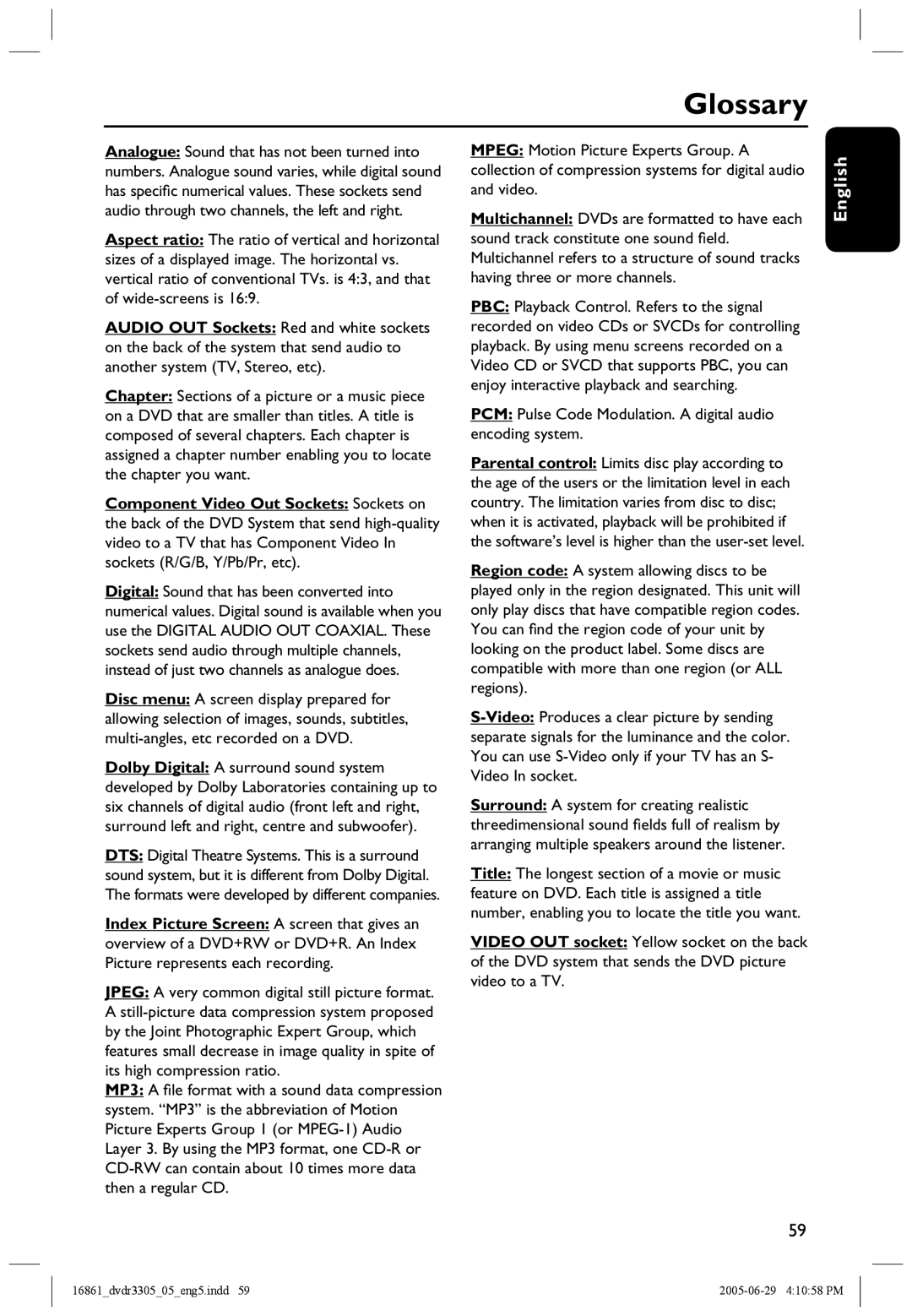
Glossary
Analogue: Sound that has not been turned into numbers. Analogue sound varies, while digital sound has specific numerical values. These sockets send audio through two channels, the left and right.
Aspect ratio: The ratio of vertical and horizontal sizes of a displayed image. The horizontal vs. vertical ratio of conventional TVs. is 4:3, and that of
AUDIO OUT Sockets: Red and white sockets on the back of the system that send audio to another system (TV, Stereo, etc).
Chapter: Sections of a picture or a music piece on a DVD that are smaller than titles. A title is composed of several chapters. Each chapter is assigned a chapter number enabling you to locate the chapter you want.
Component Video Out Sockets: Sockets on the back of the DVD System that send
Digital: Sound that has been converted into numerical values. Digital sound is available when you use the DIGITAL AUDIO OUT COAXIAL. These sockets send audio through multiple channels, instead of just two channels as analogue does.
Disc menu: A screen display prepared for allowing selection of images, sounds, subtitles,
Dolby Digital: A surround sound system developed by Dolby Laboratories containing up to six channels of digital audio (front left and right, surround left and right, centre and subwoofer).
DTS: Digital Theatre Systems. This is a surround sound system, but it is different from Dolby Digital. The formats were developed by different companies.
Index Picture Screen: A screen that gives an overview of a DVD+RW or DVD+R. An Index Picture represents each recording.
JPEG: A very common digital still picture format. A
MP3: A file format with a sound data compression system. “MP3” is the abbreviation of Motion Picture Experts Group 1 (or
MPEG: Motion Picture Experts Group. A collection of compression systems for digital audio and video.
Multichannel: DVDs are formatted to have each sound track constitute one sound field. Multichannel refers to a structure of sound tracks having three or more channels.
PBC: Playback Control. Refers to the signal recorded on video CDs or SVCDs for controlling playback. By using menu screens recorded on a Video CD or SVCD that supports PBC, you can enjoy interactive playback and searching.
PCM: Pulse Code Modulation. A digital audio encoding system.
Parental control: Limits disc play according to the age of the users or the limitation level in each country. The limitation varies from disc to disc; when it is activated, playback will be prohibited if the software’s level is higher than the
Region code: A system allowing discs to be played only in the region designated. This unit will only play discs that have compatible region codes. You can find the region code of your unit by looking on the product label. Some discs are compatible with more than one region (or ALL regions).
Surround: A system for creating realistic threedimensional sound fields full of realism by arranging multiple speakers around the listener.
Title: The longest section of a movie or music feature on DVD. Each title is assigned a title number, enabling you to locate the title you want.
VIDEO OUT socket: Yellow socket on the back of the DVD system that sends the DVD picture video to a TV.
English
59
16861_dvdr3305_05_eng5.indd 59 |
